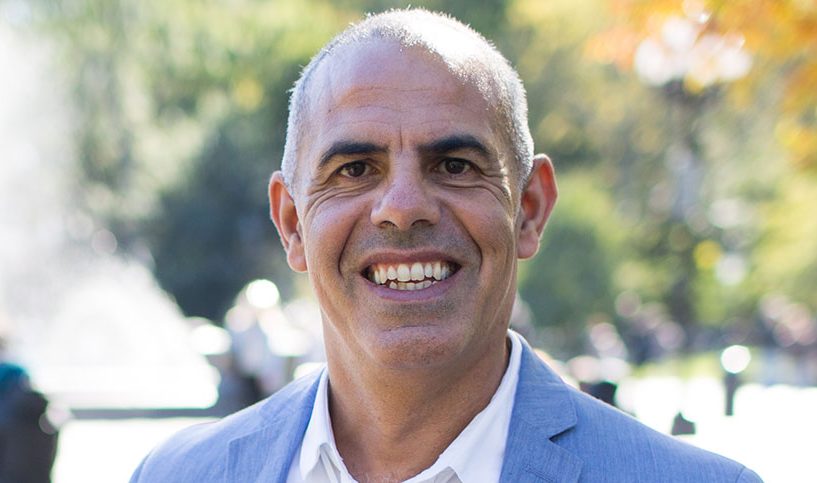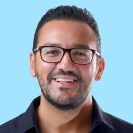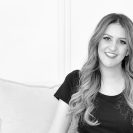For one Rony Jalkh, the power of creating a ‘place’ for the community to enjoy and benefit from stems from a very personal experience of being separated from other people in his community. Growing up during Lebanon’s civil war era, Rony was literally isolated from his countrymen, simply because of their religious or political affiliations.
Fast forward to many years later, Rony Jalkh is an activist and practitioner of ‘Placemaking’, a multi-faceted approach to the participatory planning, design, and management of public spaces. And at this year’s upcoming Nuqat Regional Conference, you too could learn about this discipline and how you can apply it to your immediate community.
The workshop participants will be able to not only understand the conceptual definition of ‘Placemaking’, as participants will also understand the methodology and practical approaches to this field of thought, and how to create functional public spaces for promoting social inclusion, health, happiness, and economic wellbeing.
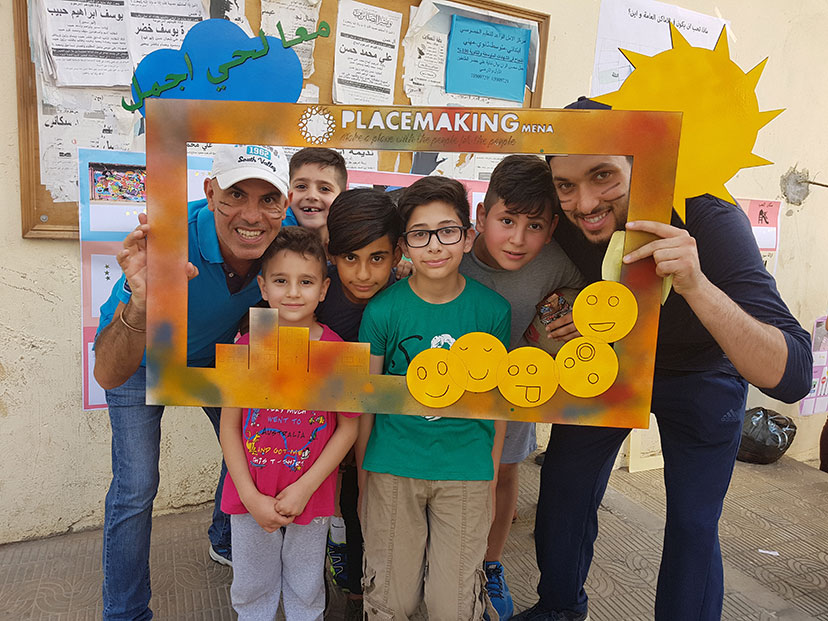
With nearly ten years’ experience in landscape design and 16 years of experience working with UN-Habitat and other international organizations, Rony has extensive professional experience managing and monitoring projects relating to governance, relief, humanitarian, local development, urban analysis, civil society, and local authorities’ empowerment. As an activist and practitioner of placemaking mainly in disadvantaged neighborhoods, Rony also conducts courses, lectures, and workshops in universities throughout his home country of Lebanon.
What did you want to be when you were growing up?
I always wanted to work in the humanitarian, local development field or anything considered as a response to human needs.
What can participants expect to learn in your workshop?
To be introduced to Placemaking as a concept and understand the methodology in order to be able to create good public spaces that promote social and economic well-being. To be introduced to different participatory tools that can be used to mobilize the community to help them express their needs and aspirations.
How will attendees practice elastic thinking in your workshop?
In fact, Placemaking is an “elastic thinking” tool. Placemaking is a multi-faceted approach to the participatory planning, design, and management of public spaces. Put simply, it involves both looking carefully at a place, and observing and listening to the people who live, work, and play there—all in an effort to discover their needs and aspirations. This information is then used to create a common vision for the place.
Is there a turning point or an experience in your life that made you change your mindset or practice elastic thinking? If there is—please take us through that process. I.e. what was your initial mindset, what was the experience you were faced with that triggered you to change your mindset and what mindset are you in now?
Back in 2015, I discovered Placemaking as a concept, which enabled me to assign a title to different activities or interventions I have implement previously, this was all based on a bottom-top approach. I was convinced that participation is essential for sustainability. I worked on a project in one of the deprived neighborhoods in Beirut, where we had planted more than a hundred trees in order to increase the greenery of the area.
We used a participatory model to identify the plantation spots and to implement the project. I visited the street after ten years, and I was really happy to see that all the trees are still there and people are taking advantage of the shade as a place for social interaction and economic activity, as they installed small businesses. I understood that people need such places and they are ready to appropriate them if they are involved in the process of reshaping these common spaces. Working with the community to create a vision around the places they view as important to community life and to their daily experience is key to building a strategy for implementation.
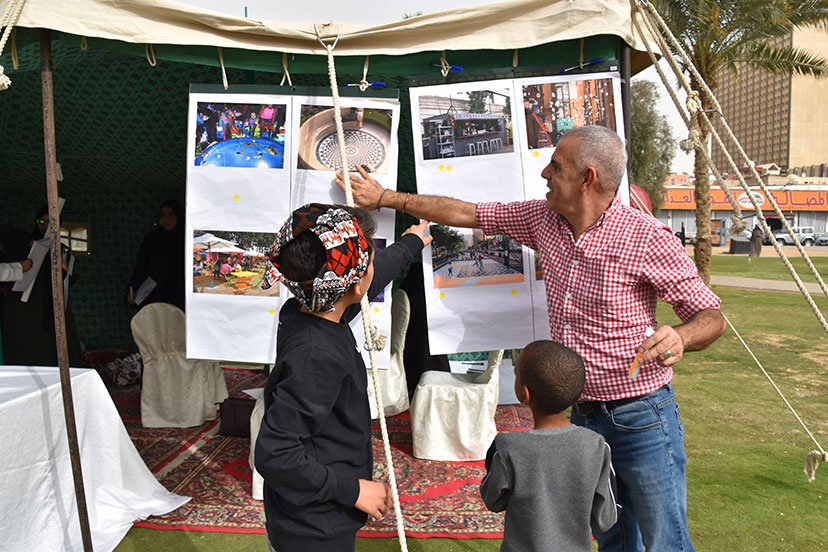
What are you looking forward to the most about coming to Kuwait?
Meeting new people, learning about their lives, learning new stuff and promoting the concept of Placemaking.
What is your teaching philosophy?
Learning by doing.
Do you believe that the process of practicing “elastic thinking” could be taught, or is it best understood through experience?
It is not taught at all. It is an amazing and unforgettable experience that you have. It is a way to enjoy while learning.
What did you want to be when you were growing up?
I always wanted to work in the humanitarian, local development field or anything considered as a response to human needs.
What would you consider to be the starting point of your career?
The starting point of my current career was the year 2000 after spending 16 months as a volunteer in one of the slums in Brazil.
Have you faced any structural, social or personal barriers in your personal or professional journey? If so, what were they?
Growing up during the Lebanese civil war has caused a lot of barriers in my personal life in terms of being isolated in a small area without having the opportunity to connect with other Lebanese from different religious backgrounds or who belonged to different political affiliations. When I was 18, I decided to volunteer with the Lebanese Red Cross, so I was able to go for missions throughout the country and meet different people.
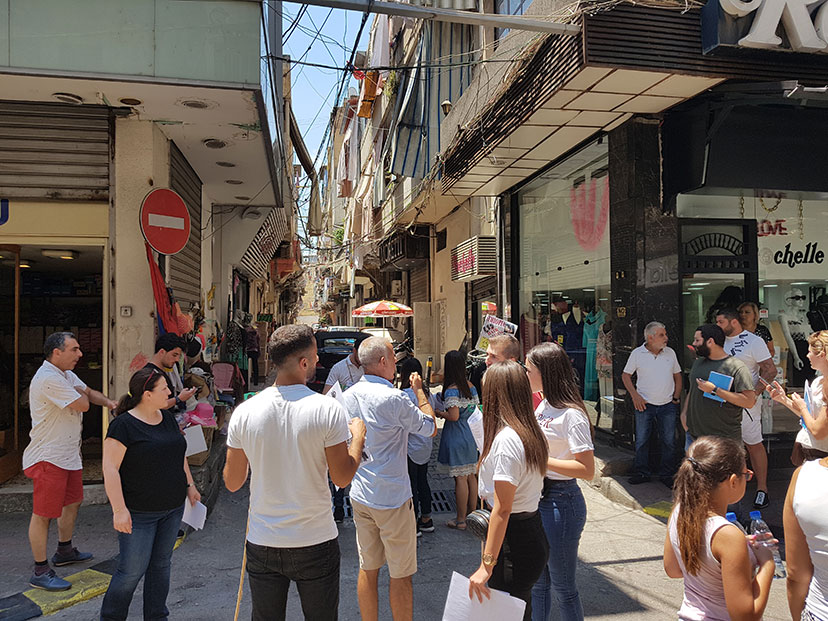
What do you do when you are experiencing a creative block?
I am blessed to say that, so far, I’ve never experienced a creative block.
What would your superpower be?
Communication, creativity and ambition.
How do you relax?
Reading, meeting new people and walking and walking and walking and walking.
What item would you put in a time capsule to help the next century understand our current moment?
A book.
Workshop Details
Date: Nov 24th – 28th
Time: 14:00 – 18:00
Location: TBD
Who can attend: Adults who are interested in experiencing cities and public spaces
Language: Bilingual
Objective:
This workshop aims to transform cities and public spaces through placemaking, by introducing participants to placemaking as a concept/philosophy/methodology to create functional public spaces for promoting social inclusion, health, happiness, and economic wellbeing. The workshop will also explore different participatory approaches that can be used to mobilize the community to help members express their needs and aspirations.
DAY 1 | Introduction to placemaking – What makes a successful public space?
DAY 2 | Participants will receive some background on conducting placemaking before heading to the nearest public space. The Place Game will be conducted with guidance of our team. A Place Game Report will follow the visit to discuss participants’ findings and personal experience.
DAY 3 | Different participatory assessment tools and techniques will be introduced to the participants such as trace measures, activity mapping, tracking, interaction, observation, kids’ eyes levels, pop-up stations, and visioning activities.
DAY 4 | Participants solidify their ideas into a specific vision, develop specific recommendations, create an action plan (long term and short term), and develop a visual concept using Lighter, Quicker, Cheaper (LQC).
DAY 5 | Presentations
Register for the workshop today at www.nuqat.me and stay updated about Nuqat’s latest on Instagram @nuqat.

